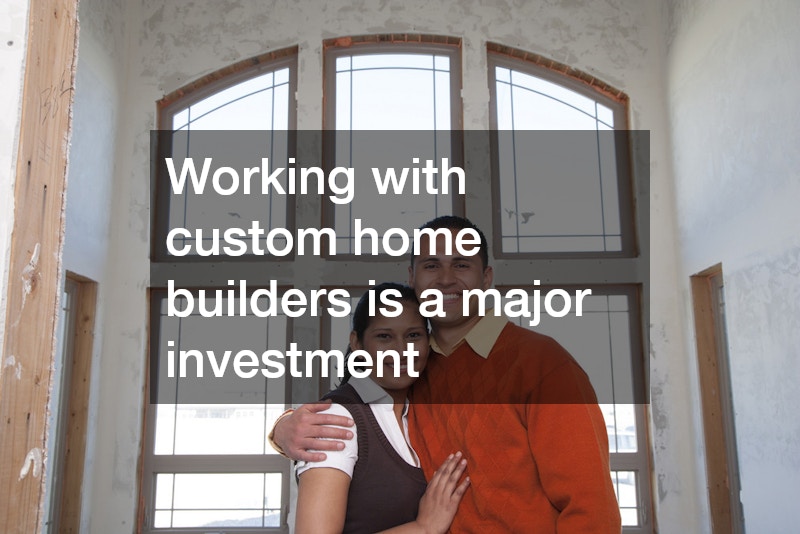Building a custom home is one of the most exciting — and sometimes overwhelming — experiences a homeowner can have. The chance to design every detail to fit your lifestyle and preferences is incredibly rewarding. However, the process can quickly become stressful and costly if you make common mistakes when working with custom home builders. To help you navigate the journey smoothly, here are the top mistakes to avoid — and how to set yourself up for success from the very start.
Not Researching Your Builder Thoroughly
Choosing the right custom home builder is the foundation of a successful project. Too often, homeowners pick the first builder they meet or rely solely on price without doing enough research.
Before signing any contracts, take the time to:
-
Review the builder’s portfolio and see if their past projects match your style.
-
Check references and reviews online.
-
Visit homes they’ve built, if possible.
-
Verify licenses, insurance, and credentials.
Remember, the cheapest quote isn’t always the best choice. A reputable builder might cost more upfront but will save you from headaches and hidden costs later on.
Failing to Communicate Clearly
Even the best builder can’t deliver your dream home if they don’t understand what you want. A lack of communication is one of the biggest mistakes homeowners make.
Be specific about your expectations, preferences, and deal-breakers — and document everything. Use drawings, photos, or design inspiration boards to clearly express your vision. Regularly check in throughout the project to ensure your builder stays on track.
Pro tip: Establish one main point of contact (such as the project manager) to keep communication organized and avoid mixed messages.
Skipping the Budget Planning Stage
Custom homes can easily exceed your budget if you’re not careful. Many homeowners underestimate costs or forget to factor in upgrades, landscaping, permits, or design changes.
Before you start construction, work with your custom home builder to create a realistic, itemized budget. Add a contingency of 10–15% for unexpected expenses.
Be upfront about your financial limits and avoid making major design changes mid-project — that’s where costs can skyrocket quickly.
Overlooking the Importance of the Contract
A detailed contract protects both you and your builder. Unfortunately, some homeowners rush through this step or sign without reading the fine print.
Your contract should clearly outline:
-
The scope of work
-
Materials and finishes to be used
-
Timeline and milestones
-
Payment schedule
-
Change order procedures
-
Warranty details
If anything seems vague or confusing, ask for clarification or have a legal professional review it before signing. A clear, comprehensive contract prevents future disputes.
Ignoring Site and Design Considerations
Every piece of land comes with its own challenges — slope, soil type, drainage, and local regulations can all affect your home design and cost. Many homeowners select a floor plan before assessing their lot, leading to expensive redesigns later.
Work with your custom home builders early to evaluate the site before finalizing your plans. They can advise on the best design options for your property’s orientation, sunlight exposure, and natural features.
Making Decisions Too Late
Building a custom home involves hundreds of decisions — from flooring materials to faucet styles. Delaying choices can lead to construction delays and extra costs.
Plan ahead by creating a decision timeline with your builder. This ensures materials are ordered on time and keeps the project moving smoothly. Being proactive also helps you avoid last-minute compromises that you might regret later.
Underestimating the Timeline
It’s easy to get impatient when you’re excited to move into your dream home. But high-quality craftsmanship takes time. Weather conditions, material delays, or permit approvals can all impact your timeline.
Discuss realistic completion dates with your builder from the start, and ask for regular progress updates. Flexibility is key — it’s better to wait a few extra weeks than to rush and end up with mistakes or unfinished work.
Neglecting Energy Efficiency and Future Needs
It’s tempting to focus solely on style and finishes, but your custom home should also be built for long-term comfort and efficiency.
Ask your builder about energy-efficient options such as insulation, windows, HVAC systems, and solar readiness. Also, think about your future lifestyle — whether that means aging in place, a growing family, or resale value. Smart planning today can save you money and effort later.
Working with custom home builders is a major investment, both financially and emotionally. Avoiding these common mistakes will help ensure a smoother, more enjoyable building experience — and a final result you’ll love for years to come. Do your homework, stay engaged, and choose a builder who shares your vision. With the right partnership, your dream home will become a lasting reality.

